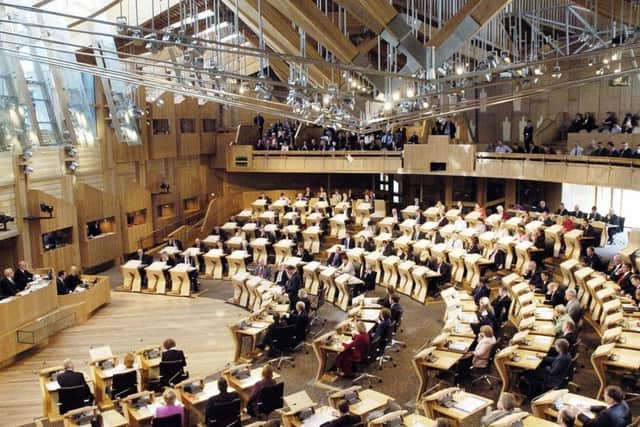Election explained: Will Holyrood enjoy a ‘powers bonanza’ after Brexit?
Responsibilities
On the face of it, many of these controls lie in "devolved" areas such as farming and fishing, as well as some environmental controls and parts of the justice system.
But senior UK ministers were not keen to see a blanket return of everything that would nominally fall within Holyrood's remit, amid concerns that this could interfere with the workings of the UK internal market.


Power Grab
Advertisement
Hide AdAdvertisement
Hide AdThe Scottish Government argued that this amounts to an effective veto over devolved administrations, something they say not only defies the spirit, but the letter, of devolution laws. They have accused the UK Government of breaching the Sewel Convention, which decrees that Westminster should not “normally” legislate in devolved areas and staging an effective "power grab." This has been disputed by the UK Government with former Scottish Secretary David Mundell insisting that Scotland would still enjoy a "powers bonanza."
Wales
And the Scottish Government had the support of the Welsh Government who backed the "power grab" claims. Negotiations to defuse the situation last year saw the UK Government propose a compromise which would see the vast majority of those devolved powers coming back from the EU returning to Cardiff, Edinburgh and Belfast while the rest temporarily stayed in London. This was eventually accepted by Wales, but the Scottish Government refused to budge.
UK Market
Tempers boiled over when the devolution provisions of the EU Withdrawal Bill were passed with almost no discussion in the Commons, sparking outrage from SNP ministers. This paved the way for "common frameworks" to be established in areas which concerns the UK Government. Senior Tory Minister insists this has been done for practical reasons to ease the free movement of goods and ensure a UK-wide approach to things like labelling of food packaging and regulations for the movement of livestock between Scotland the rest of the UK.
Contempt
Scotland's Brexit minister Michael Russell said Holyrood was “being treated with contempt by the UK government” and claimed “we can’t carry on with devolution as it is now”.
The row has fallen out of the headlines over the past year, as talks continued on the joint management of new powers in areas like agriculture, fisheries and the environment between the UK and devolved governments,
Common Frameworks
But Scottish ministers say their position remains unchanged.
"We are prepared to agree common frameworks when they are in Scotland’s interest and where they are reached through consensus – not if they are imposed in devolved areas without the agreement of the Scottish Parliament," a spokesman said.